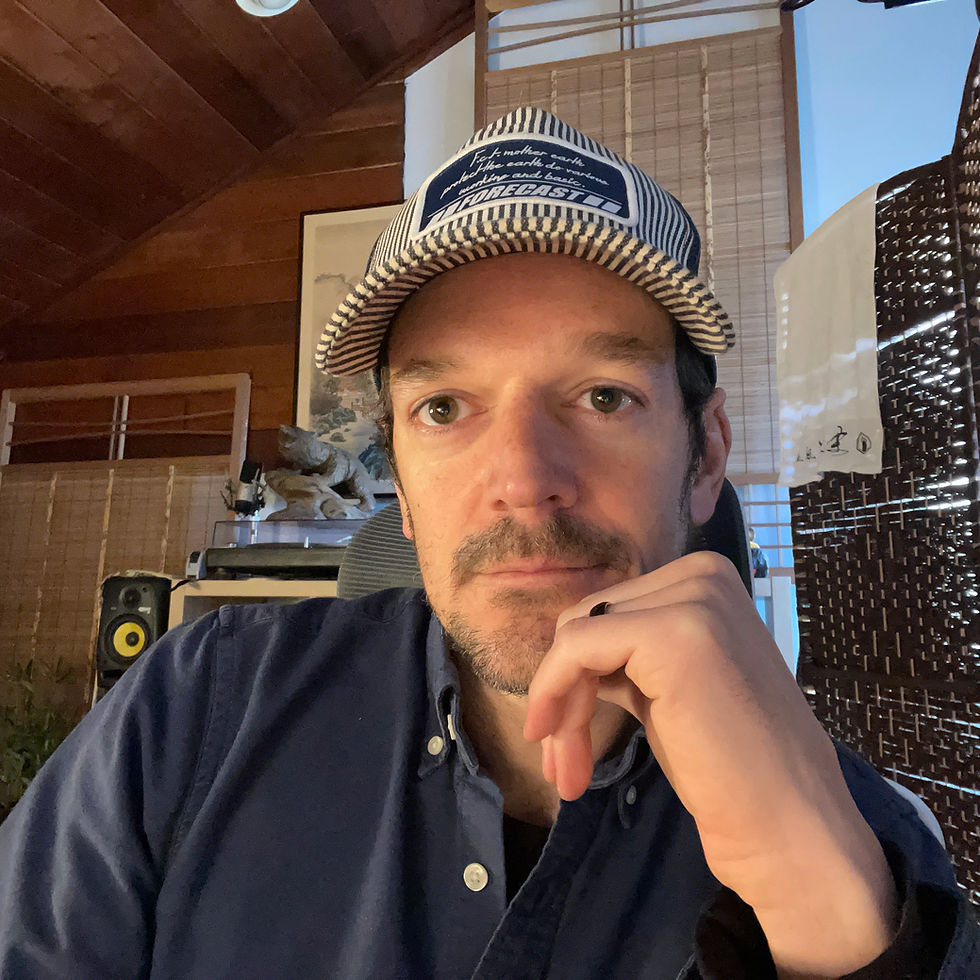Member Highlight: Susan Schopp
- Japan Society of Boston

- Oct 5, 2023
- 4 min read

[From Susan: "My very first New Year’s in Japan. I was teaching English at a college in Kyoto, and one of my students invited me to go home with her for the holiday. Her mom made me a kimono, which I’m wearing in the photo and still have to this day."]
What is your background with Japan?
I’ve lived in Japan twice, both times in Kyoto. The first time was following my graduation
from college. My Japanese history professor knew I was interested in living in Asia, and
he introduced me to the Japanese history professor at Amherst College, who had a
friend, a professor of English, who had recently become the head of the English
department at Kyoto Seika Tanki Daigaku 京都精華短期大学 (now Kyoto Seika Daigaku
京都精華大学). The Seika professor sought a young American to teach spoken English,
and I got the job. For the first year, I also taught one day a week at a junior high school. I
lived in the women’s dorm at Seika; in my second year, I moved into an apartment that I
shared with a Japanese friend.
I stayed in Japan for two years, then went back to the US, worked for a couple of
years, went to Cornell for an M.A. in East Asian Studies (mostly about Japan),
started a Ph.D. in Japanese literature, then quit the Ph.D. and went back to Kyoto.
This second time, I stayed for three years; I taught listening comprehension and
translation from Japanese into English at a “prep school,” or yobikō 予備校, where
high school graduates prepared for university entrance exams. I also taught
English to managers at Coca-Cola.
For someone who’s interested in art and history, living in Kyoto was a dream
come true. I was also able to travel to other parts of Japan. I later met my
husband, who had lived in Tokyo, through mutual Japanese friends. And I’m still
in touch with the Seika English professor and other friends I made, and I try to go
back to visit every few years. I had no idea when I first went to Japan what a
valuable experience it would be, or that it would continue to enrich my life through
all the years that followed. It has made such a difference!
How long have you been a member of the Japan Society of Boston?
I’ve been a member of JSB since 2020.
What drew you to JSB?
I knew someone who was a member of the JSB. She encouraged me to join when
she learned that I had lived in Japan. I was particularly interested in learning more
about the JSB’s activities, in taking classes, and in supporting the connection
between Japan and Boston.
How would you describe yourself and what you're passionate about?
I like to think of myself as a citizen of the world rather than of a specific country
and to be open to embracing cultures in addition to the one in which I was raised;
the United States. I owe much of this to my first period of living in Japan. I’ve lived
there twice: for two years the first time, and for three years, the second; both
times were in Kyoto. I arrived the first time when I was just 22, and have been
grateful ever since for all I learned and for the friends I made.
My primary passion is ships — especially those, both Asian and Western, involved in
international trade in Asia in the eighteenth and early nineteenth century. This was the
era of 鎖国 (sakoku: isolation) in Japan, so I focus primarily on trade with China (c.
1700–1842), through the port of Canton (Guangzhou). I’m also a member of the
volunteer crew of Friendship of Salem. She’s a full-size, fully operational
reconstruction of a ship that was built in Salem, Mass., in 1797 to trade with Asia.
As was true of the original Friendship, her home port is Salem.
Another major interest is Japanese 版画 of the eighteenth and nineteenth centuries.
Much of my educational background is in art history, as well as traditional Japanese
wooden houses—I first became interested in them by living in Kyoto.

[Susan on board the tall ship Friendship of Salem last November (2022)
"I’m a crew member!"]
Do you have a favorite event or program that you have participated in with JSB?
Yes, the cooking classes! And the visit to see the tatami craftsmen at work at the
Japanese house (machiya 町家) at the Boston Children’s Museum this past June.
What about JSB makes it special from other groups within the Boston area?
Its link to Japan, the variety of activities and insights offered, and the welcome
given to individuals not only when they wish to join, but also after they’ve become
members. In both classes and in-person visits, I’ve felt a connection that’s really
remarkable.
What would you say to somebody who is considering joining JSB?
Join! No matter how many or how few activities you take part in, it’s both
enjoyable and educational and is a great way to maintain ties to Japan. You’ll have
opportunities both to share your feelings for Japan with others and to do things
that you wouldn’t have done otherwise.
Interested in becoming a JSB Member? Click here or reach out to info@japansocietyboston.org for more details.







